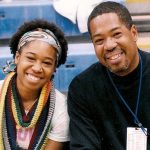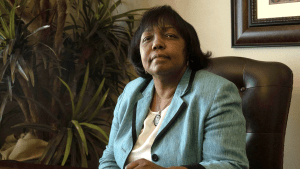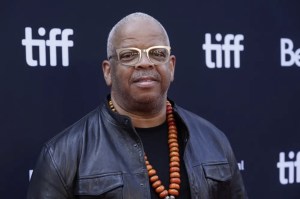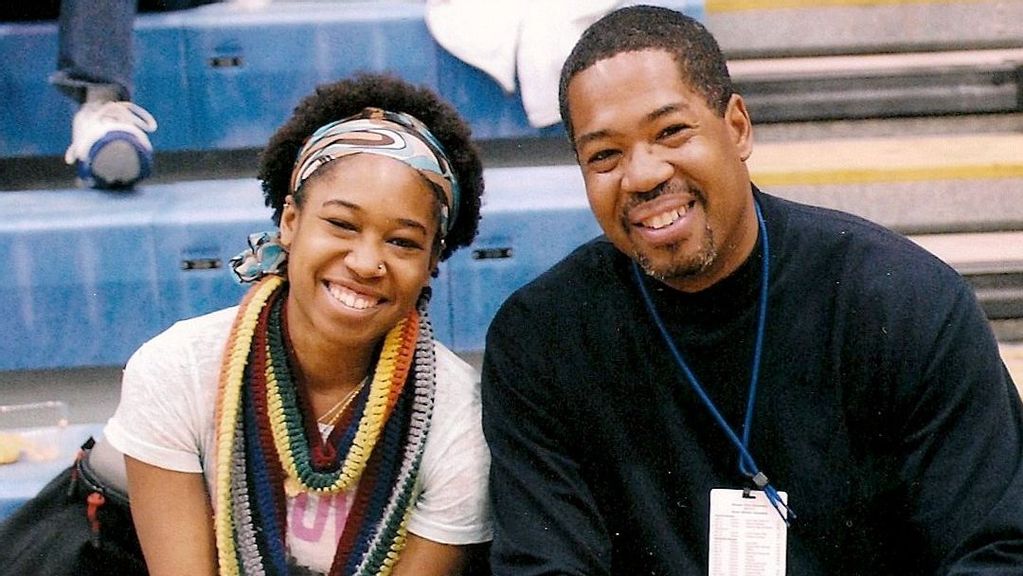
Ashley Bembry-Kaintuck is enjoying her own winning season.
The filmmaker celebrated the debut release on March 14 of the documentary “On & Coppin,” which she co-directed with her father, renowned sports journalist Jerry Bembry.
She also attended the 94th Academy Awards on March 27, where she won an Oscar for her work as an associate producer on “Summer of Soul (Or, When The Revolution Could Not Be Televised),” directed by Ahmir “Questlove” Thompson.
“Before the Oscars, I thought ‘This should be cool,’” Bembry-Kaintuck said. “Being there makes me want to be in a position where I’ll be there again.”
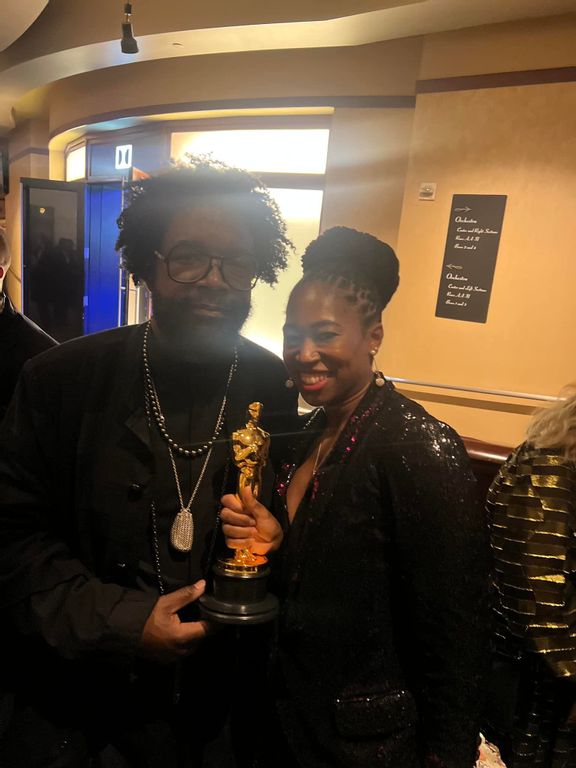
Bembry-Kaintuck was “legit rubbing elbows” with famous actors, artists and celebrities at the Dolby Theater in Hollywood. She watched Questlove’s acceptance speech and met actors Will Smith, Tracee Ellis Ross, Bill Murray, Sam Jackson and John Leguizamo.
Leguizamo “congratulated me on the Oscar,” said Bembry-Kaintuck, who also spoke to musician Sheila E and civil-rights activists Al Sharpton and Jesse Jackson, among other celebrities, while discussing “Summer of Soul’s” depiction of the almost two-month-long 1969 Harlem Cultural Festival, which celebrated black history, culture, music and fashion.
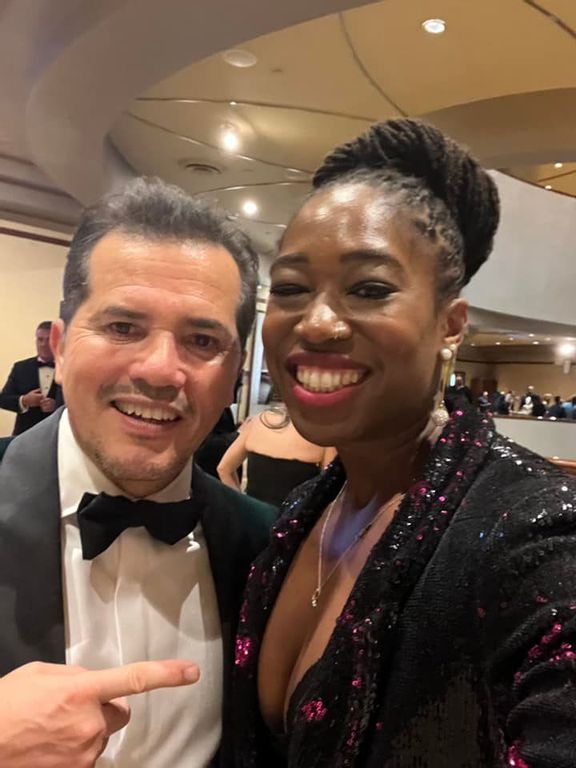
The “On & Coppin” experience was “probably the most exciting project I’ve worked on — even more so than ‘Summer of Soul’ — because it was a chance to work with my father on something that we’ve talked about for years,” said Bembry-Kaintuck. “For both of us, it was very personal. We know all the guys from those teams because I went to those games when my dad covered Coppin for The Baltimore Sun.”
Narrated by “The Wire’s” Felicia “Snoop” Pearson, “On & Coppin” chronicles the unlikely first-round upset of South Carolina by Coppin State University of Baltimore on March 14, 1997, when the Eagles became the first team from the historically black Mid-Eastern Athletic Conference to win an NCAA men’s basketball game.
Bembry-Kaintuck discussed her journey with Zenger.
Zenger: Where did you grow up? What is your educational background?
Ashley Bembry-Kaintuck: I graduated from North Penn High School in Lansdale, Pennsylvania, and later went to American University in Washington, D.C.
I ran track in high school and for two years in college. I ran sprints and did the long jump and triple jump. I majored in film, minored in African-American Studies and graduated in 2012.
Zenger: How does it feel to be called an Oscar winner?
ABK: That’s a hard one to answer. It feels weird because it was such a small project to start, so I didn’t think it was actually going to be a thing. It’s the first feature film I ever worked on, and I never thought when I started down this path I would be attending the Oscars or working on a film that won an Oscar.
Zenger: When did you feel like “Summer of Soul” might be in the running for an Oscar?
ABK: Probably the week before, when The New York Times ran a story that said we were the favorite to win. I had no expectations about it. When The New York Times predicts you’re going to win, it’s a good gauge.
Zenger: What was the atmosphere like at the Oscars?
ABK: Exciting. I didn’t know what to expect, and we had a lot of fun.
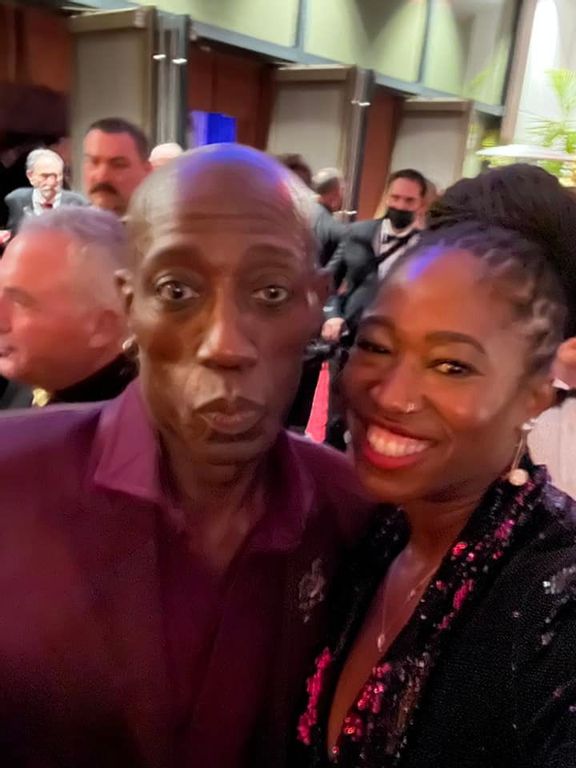
Zenger: What was it like walking the red carpet?
ABK: It was cool to see all the different celebrities. That was exciting.
Zenger: Who were the most exciting people you were able to meet?
ABK: John Leguizamo and Wesley Snipes, the stars of “To Woo Fong, Thanks for Everything! Julie Newmar,” which is one of my favorite movies. I’ve been watching that since I was young. Seeing the two of them — they were both so nice and receptive. John Leguizamo congratulated me on the Oscar.
Zenger: What exactly was your role in “Summer of Soul”?
ABK: I was an associate producer. I pretty much found all the festival goers that appeared in the documentary and built up relationships with them. They felt comfortable when they were interviewed. I also helped out on the edit.
Zenger: Which of the musicians from the documentary did you meet?
ABK: Marilyn McCoo and Billy Davis Jr. from The 5th Dimension, the drummer from Sly and the Family Stone, one of the women from the Edwin Hawkins singers and the people we interviewed about the concert, such as Sheila E, Chris Rock, Al Sharpton and Jesse Jackson.
Zenger: Was it exciting to work on that project?
ABK: It was a part of history. Some people, of course, I didn’t know because that festival happened when my dad was a young boy. The real excitement for me was connecting with the festival goers, especially the Black Panther who was there just because my minor in college was African-American studies. So it was great to meet people who were a part of history.
Zenger: How important was “Summer of Soul” from a historical standpoint?
ABK: It was very important. It brought to light something that people have forgotten about, except for people who were in Harlem. There was no social media during that time, so the knowledge of what happened that summer stayed in Harlem.
While everyone equates music and 1969 with Woodstock, it was nice to work on a project where we were able to showcase another event that was just as important but not publicized.
Zenger: How rewarding was doing “On & Coppin” with your father?
ABK: It was probably the most exciting project I’ve worked on, even more so than “Summer of Soul.” It was a chance to work with my father on something that we’ve talked about for years.
For both of us, it was very personal. We know all the guys from those teams — I went to those games when my dad covered Coppin for The Baltimore Sun. They’re like family. It was a very big deal.
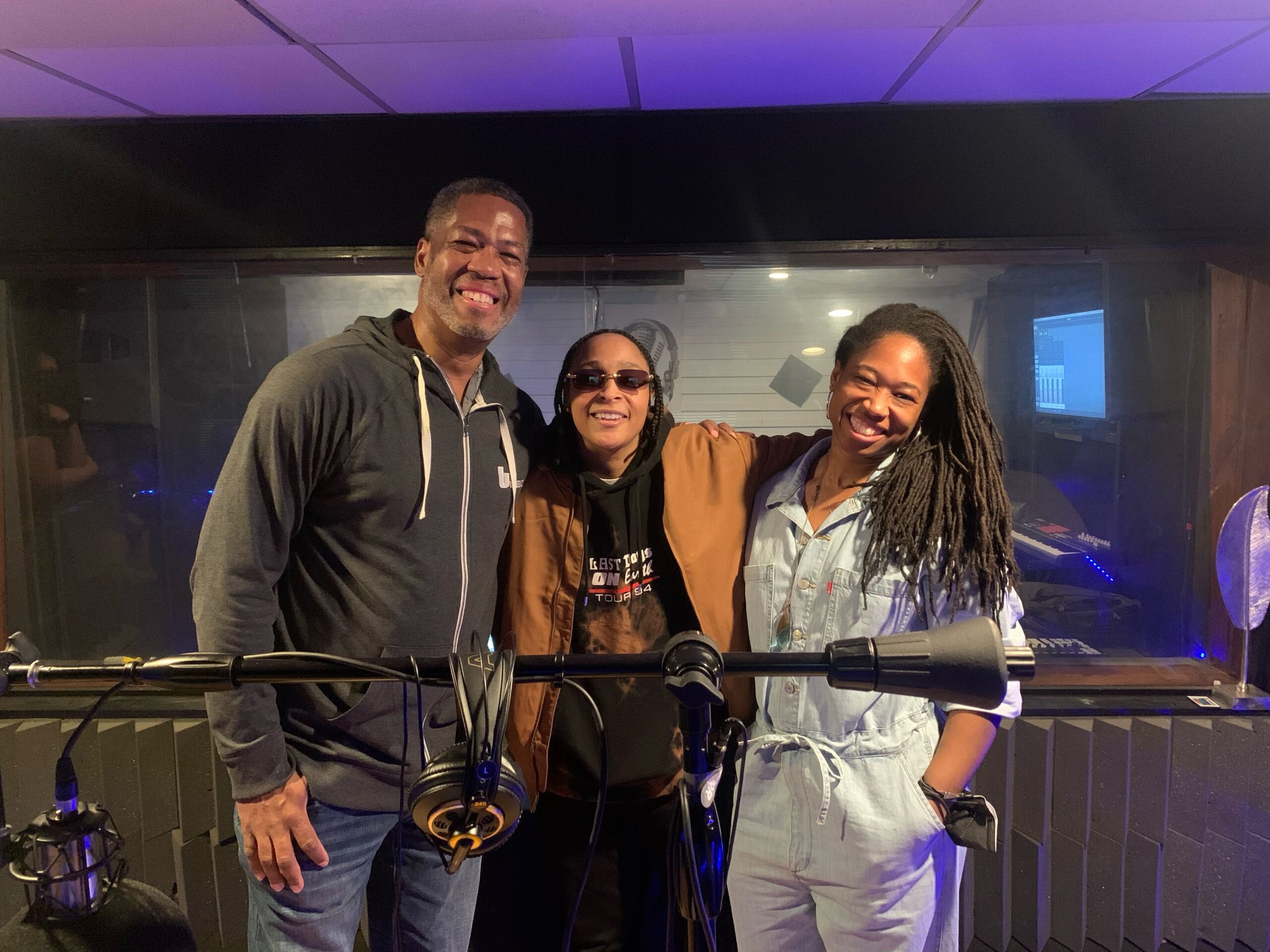
Zenger: What was the significance of Coppin, as a historically black college and university [HBCU], beating South Carolina?
ABK: No one knew who Coppin was, so for this tiny HBCU to go into the NCAA tournament and beat a powerhouse like South Carolina was big.
It’s something that people should know about because a lot of times, like “Summer of Soul,” those moments are lost in history.
That win in 1997 was big, and Fang Mitchell — the Coppin coach — made a difference in the lives of a lot of student athletes. To bring that story to life and to ESPN was very important.
Zenger: How did the work process on the Coppin documentary differ from what you’ve done on other projects?
ABK: It was different because I did everything. I handled the money, I worked on scripts, I organized shoots. I had my hands on a bit of everything. Doing that was rewarding because I got to experience sides of a production that I [otherwise] wouldn’t have. It gave me further appreciation of everyone’s role in a project.
Zenger: Describe your relationship with your father, his guidance and creative influence on you.
ABK: He had a big influence on the fact that I wanted to be a storyteller. I went to work with him so often and saw what he did. Originally, I was going to go to school for journalism, and he told me that it probably wasn’t the best route to pursue. So I studied film at American University, and I went into this field because of him.
Zenger: Do you want to work with your father again?
ABK: Yes, 100 percent, yes! And we will.
Edited by Fern Siegel and Siân Speakman
Recommended from our partners
The post ‘Summer Of Soul’ Oscar Winner Bembry-Kaintuck’s Star Is On The Rise appeared first on Zenger News.

